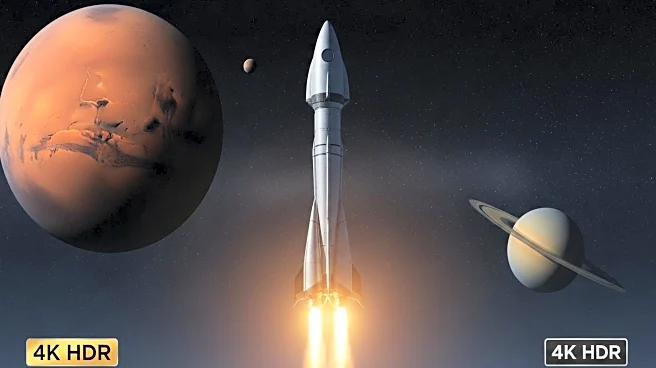What is the story about?
What's Happening?
SpaceX has set a new record with its 125th Falcon 9 mission of 2025, launching 28 Starlink satellites. This marks a significant milestone, with Starlink now comprising over 70% of SpaceX's launches this year. Meanwhile, NASA's Perseverance rover has discovered an organics-rich Mars rock, hinting at potential life-related chemical reactions. Additionally, scientists have found complex organic molecules in the icy plumes of Saturn's moon Enceladus, bolstering its potential habitability.
Why It's Important?
SpaceX's record launch cadence underscores its dominance in the satellite communications sector, with implications for global internet access and space industry growth. The Mars and Enceladus discoveries are crucial for astrobiology, offering insights into potential life beyond Earth. These findings could drive future missions and research, impacting scientific understanding and exploration priorities.
What's Next?
SpaceX is preparing for the second test flight of its Starship rocket, aiming to reach orbit and advance reusable launch technology. NASA's Mars Sample Return campaign may retrieve samples from Perseverance's discoveries for further analysis. The Enceladus findings could lead to new missions focused on life detection and sample return, enhancing our understanding of extraterrestrial environments.
Beyond the Headlines
The discoveries on Mars and Enceladus highlight the ethical considerations of planetary protection and contamination. As exploration intensifies, ensuring the integrity of extraterrestrial ecosystems becomes paramount. The rapid pace of SpaceX's launches also raises questions about space traffic management and debris mitigation.
















